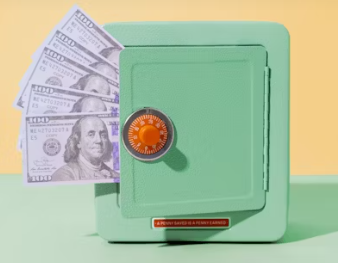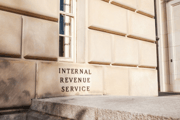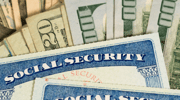$600 revenue share stimulus checks may be headed your way—but only if you meet these 2 criteria
- Replies 10
Is your wallet feeling a little lighter these days? You’re not alone.
With prices on everything from groceries to gas climbing higher than a Fourth of July firework, many Americans—especially those of us in the over-60 crowd—are looking for a little relief.
Well, there’s a new proposal in Washington that could put some extra cash in your pocket, and it’s not your typical stimulus check.
This time, the money isn’t coming from the usual government coffers or pandemic relief funds. Instead, it’s tied to a surprising source: tariffs.
In June alone, the federal government raked in a record-breaking $27 billion in tariff revenue—up from just $4 billion the year before. That’s a lot of extra dough, and some lawmakers are eyeing it as a way to give back to everyday Americans.
Enter Senator Josh Hawley of Missouri. He’s introduced the American Rebate Worker Act, a bill that would send $600 checks—tariff rebate payments—to eligible American workers and their families.
The idea is simple: if tariffs are bringing in big bucks, why not share some of that windfall with the people who need it most?

If you’re wondering whether you’d qualify, here’s what we know so far. The eligibility requirements are expected to mirror those from the COVID-19 stimulus checks, which means:
Before you start planning how to spend your rebate, there’s a big caveat: Congress still needs to approve the plan.
While Senator Hawley is championing the bill, and former President Trump has voiced support for the idea, it’s not a done deal yet. As with all things in Washington, there’s a lot of debate and negotiation ahead.
But the momentum is real. President Trump recently told reporters, “We have so much money coming in, we’re thinking about a little rebate.” So, while nothing is guaranteed, it’s definitely on the radar.
Also read: Navigating the financial waters: your guide to state stimulus checks
You might be wondering: where is all this tariff money coming from, and what does it mean for the things you buy?
Tariffs are essentially taxes on imported goods, and the current administration has expanded them on a wide range of products. That means more money flowing into government coffers—but it can also mean higher prices at the store.
Here are just a few everyday items that could see price increases due to tariffs:
Also read: A new proposal could bring $1,000 rebate checks to millions of homeowners
You may have heard some buzz about so-called “DOGE checks”—a separate idea floating around that’s not directly tied to the tariff rebate proposal.
The concept comes from the Department of Government Efficiency (DOGE), which claims to have saved nearly $200 billion by cutting waste and fraud.
Some have suggested using those savings to send $5,000 checks to taxpayers, but so far, it’s just an idea—no official legislation has been introduced.
President Trump has expressed interest in the concept, saying, “A 20% dividend, so to speak, for the money that we’re saving by going after the waste, fraud and abuse... I think it’s a great idea.” But for now, the focus is on the tariff rebate checks.
Read next: Are rebate checks making a comeback? President Trump signals support for new payouts

What do you think about the idea of a tariff-funded rebate check? Would $600 make a difference for you and your family? Are you concerned about rising prices on everyday goods? And do you remember how you used your last stimulus check?
With prices on everything from groceries to gas climbing higher than a Fourth of July firework, many Americans—especially those of us in the over-60 crowd—are looking for a little relief.
Well, there’s a new proposal in Washington that could put some extra cash in your pocket, and it’s not your typical stimulus check.
This time, the money isn’t coming from the usual government coffers or pandemic relief funds. Instead, it’s tied to a surprising source: tariffs.
In June alone, the federal government raked in a record-breaking $27 billion in tariff revenue—up from just $4 billion the year before. That’s a lot of extra dough, and some lawmakers are eyeing it as a way to give back to everyday Americans.
Enter Senator Josh Hawley of Missouri. He’s introduced the American Rebate Worker Act, a bill that would send $600 checks—tariff rebate payments—to eligible American workers and their families.
The idea is simple: if tariffs are bringing in big bucks, why not share some of that windfall with the people who need it most?

The rebate payments would follow a familiar framework for determining eligibility. Image source: Katelyn Perry / Unsplash
If you’re wondering whether you’d qualify, here’s what we know so far. The eligibility requirements are expected to mirror those from the COVID-19 stimulus checks, which means:
1. Income Limits
- Individuals with an adjusted gross income (AGI) up to $75,000 would likely qualify for the full payment.
- Married couples filing jointly with an AGI up to $150,000 would also be eligible.
- Payments would phase out for those with higher incomes, just as they did in the previous stimulus rounds.
2. Family Size
- The rebate would be $600 per eligible worker and child.
- For a family of four, that could mean a $2,400 windfall.
Before you start planning how to spend your rebate, there’s a big caveat: Congress still needs to approve the plan.
While Senator Hawley is championing the bill, and former President Trump has voiced support for the idea, it’s not a done deal yet. As with all things in Washington, there’s a lot of debate and negotiation ahead.
But the momentum is real. President Trump recently told reporters, “We have so much money coming in, we’re thinking about a little rebate.” So, while nothing is guaranteed, it’s definitely on the radar.
Also read: Navigating the financial waters: your guide to state stimulus checks
You might be wondering: where is all this tariff money coming from, and what does it mean for the things you buy?
Tariffs are essentially taxes on imported goods, and the current administration has expanded them on a wide range of products. That means more money flowing into government coffers—but it can also mean higher prices at the store.
Here are just a few everyday items that could see price increases due to tariffs:
- Coffee and tea
- Bananas and avocados
- Foreign-made cars and auto parts
- Sneakers and clothing
- Furniture and home goods
- Pharmaceuticals
- Video games and toys
- Washers, dryers, and other appliances
- Housing materials
Also read: A new proposal could bring $1,000 rebate checks to millions of homeowners
You may have heard some buzz about so-called “DOGE checks”—a separate idea floating around that’s not directly tied to the tariff rebate proposal.
The concept comes from the Department of Government Efficiency (DOGE), which claims to have saved nearly $200 billion by cutting waste and fraud.
Some have suggested using those savings to send $5,000 checks to taxpayers, but so far, it’s just an idea—no official legislation has been introduced.
President Trump has expressed interest in the concept, saying, “A 20% dividend, so to speak, for the money that we’re saving by going after the waste, fraud and abuse... I think it’s a great idea.” But for now, the focus is on the tariff rebate checks.
Read next: Are rebate checks making a comeback? President Trump signals support for new payouts
Key Takeaways
- A new bill has been introduced in the US Senate to provide $600 tariff rebate checks to eligible American workers and families, using revenue generated from record-high tariffs.
- To qualify for the payments, eligibility requirements will be similar to those used for COVID stimulus checks, with income thresholds for both individuals and families.
- The proposed legislation would guarantee at least $600 per eligible worker and child, with the potential for larger payments if tariff revenue exceeds projections in 2025.
- While the “DOGE Dividend” idea has gained attention, it remains just a suggestion at this stage and has not advanced in Congress.






